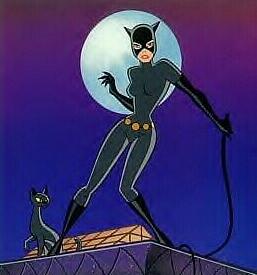Interpretations of Culture and Globalization part 2
Read Part 1 Here.
---
There are other facets to the globalization/culture argument including modernity, feminism and post modernity. Those who argue for the protection of cultures against supposed incursions of the West tend to conceive of culture as a fixed, unchanging object. It is better to leave societies alone and untouched, they argue, so that they cannot be "contaminated."
It should not be assumed that modernity is the sole provenance of the West. There are numerous problems with this method of thinking, including an unconscious categorization of modernity with Western culture, which casts the non-Western as primitive. Although much of the characteristics that gave rise to modernity arose from the West, such as the widespread use of the printing press, it is a Western-centric history that fails to recognize the pivotal role of non-Western societies in giving birth to the modern era. Scholars such as Benedict Anderson have argued that the nation-state system, a defining characteristic of the modern world, originated from the New World. Features of modernity, including the beginnings of a global economy with the growth of European trade and exploration can be seen even earlier in the Muslim diaspora and Silk Road trade. Thus, modernity is as much of a legacy of the Asia and Africa as it is of the West.
Leading sociological thinkers such as Max Weber and Emile Durkheim generally understood modernity to be a consequence of industrialization. In the modern period, people, products, and tasks were characterized by increasing specialization via the division of labor. Modernity includes the standardization of social aspects that facilitate greater integration, such as time. More generally, modernity can be described of as a transition from typically smaller local communities to greater integration into a larger society.
Thus, one of the contradictions of modernity is that with greater integration, there is greater awareness of others, and correspondingly greater delineation of “us vs. them.” Hence, awareness of other cultures more sharply defines the symbols in one’s own by the simple recognition that one’s own worldview is not the same as the other’s worldview.
Tied up with issues of modernity are also issues of feminism and women’s rights. Societies wishing to be “modern” must confront conceptions and ideas that not only bring greater material comforts but drastically change the status quo. Often, these issues are most sharply in focused in issues of women’s rights.
Tabitha Kanogo’s book, African Womanhood in Colonial Kenya, shows how women’s identity and social roles have been tied up in the struggles between the traditional and the modern. In this book, Konogo demonstrates the tensions between older concepts of women as property changing with the coming of industrialization and specialization. As in seen in the west, with industrialization comes a correspondingly increased sense of individualism.
Comparative examination between clitoridectomy in Kenya and foot-binding in China suggests that ideas of feminism and equality are central to modernization. As shown in the Konogo book, the conflicts over clitoridectomy are multi-dimensional with regards to their desirability, its symbolism as an act of womanhood as well as the social mores attached to that act.
The difference between social efforts to ban clitoridectomy in Kenya and similar movements to ban foot-binding in China is that the practice of foot-binding became linked with backwardness. This concept of backwardness would not have been possible without an awareness of the opposing principle of modernity. Foot-binding was seen as suppressing women, which in turn repressed the supposed potential of the Chinese people. The Chinese (at least the upper class who wrote and left numerous tracts behind) were supremely aware of China’s place in the world, and that they lived in an era in which China was weak while the Europeans were strong and respected in the world. Therefore it was for reasons of national pride and modernity that foot-binding was eradicated, and not for concerns of the women themselves.

